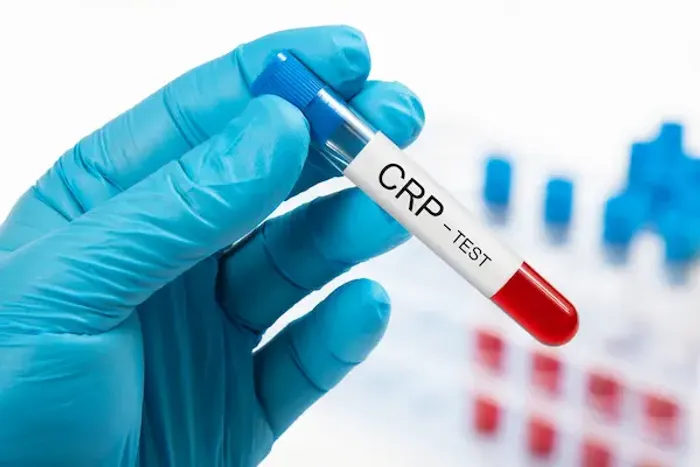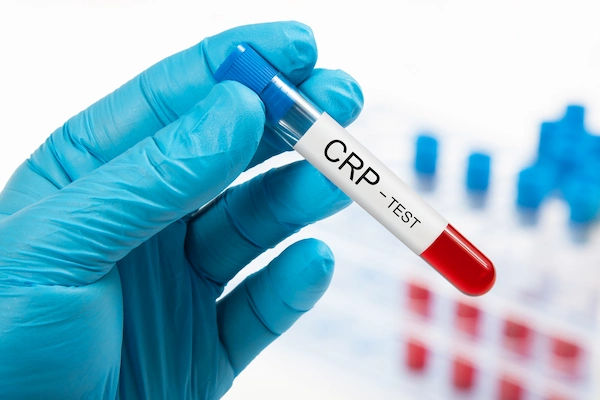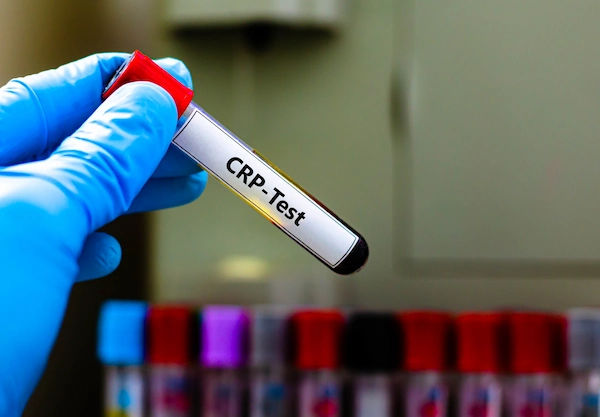CRP Test Overview and Normal Ranges
Learn about the CRP (C-reactive protein) test, its purpose, procedure, and normal ranges. Understand how it helps detect inflammation and monitor health conditions.


If you’ve ever been told by your doctor to get a C-reactive protein (CRP) test, you might wonder what it is and why it’s important. This simple blood test helps detect inflammation in your body, which can be a sign of infections, chronic diseases, or other health concerns. In this article, we’ll break down everything you need to know about the CRP test—its purpose, normal ranges, and what abnormal results may mean—in an easy-to-understand way.
What is a CRP Test?
The CRP test measures the level of C-reactive protein in your blood. CRP is a protein produced by your liver in response to inflammation. When your body is fighting an infection, injury, or chronic disease, CRP levels rise.
This test is often used to:
- Check for infections (bacterial or viral).
- Monitor inflammatory conditions like arthritis, lupus, or inflammatory bowel disease (IBD).
- Assess your risk of heart disease (a high-sensitivity CRP or hs-CRP test is used for this).
- Track how well treatments (like antibiotics or anti-inflammatory drugs) are working.
Consult a Top Specialist
Why Might You Need a CRP Test?
Your doctor may recommend a CRP test if you have symptoms of:
- Infection (fever, fatigue, swelling, pain).
- Autoimmune diseases (joint pain, rashes, unexplained weight loss).
- Chronic inflammation (long-term conditions like diabetes or heart disease).
If you’re at risk for heart disease, your doctor might suggest an hs-CRP test to measure low levels of inflammation linked to cardiovascular problems.
Understanding CRP Test Results: Normal Ranges
CRP levels are measured in milligrams per liter (mg/L). Here’s what the results generally mean:
- Normal CRP level: Less than 10 mg/L
- Indicates no significant inflammation.
- Mild elevation (10–100 mg/L):
- Could suggest a minor infection, injury, or chronic inflammation.
- High CRP (above 100 mg/L):
- Often signals a serious bacterial infection, autoimmune flare-up, or major trauma.
For the hs-CRP test (used for heart disease risk):
- Low risk: Less than 1.0 mg/L
- Average risk: 1.0–3.0 mg/L
- High risk: Above 3.0 mg/L
Get Your Health Assessed
What Causes High CRP Levels?
Several factors can increase CRP, including:
- Infections (bacterial or viral).
- Chronic diseases (diabetes, obesity, heart disease).
- Autoimmune disorders (rheumatoid arthritis, lupus).
- Injuries or surgery.
- Smoking or poor diet.
If your CRP is high, your doctor may order more tests to find the exact cause.
How to Lower CRP Levels Naturally
If your CRP is elevated due to lifestyle factors, these changes can help:
1. Eat an Anti-Inflammatory Diet
- Increase: Fruits, vegetables, whole grains, fatty fish (salmon, mackerel), nuts, and olive oil.
- Reduce: Processed foods, sugary drinks, and red meat.
2. Exercise Regularly
- Moderate exercise (walking, swimming, yoga) helps reduce inflammation.
3. Manage Stress
- Chronic stress raises CRP. Try meditation, deep breathing, or hobbies to relax.
4. Quit Smoking & Limit Alcohol
- Both smoking and excessive alcohol increase inflammation.
5. Maintain a Healthy Weight
- Obesity is linked to higher CRP levels. Losing even a small amount of weight can help.
When to See a Doctor?
If your CRP test shows high levels, consult your doctor—especially if you have:
- Unexplained fever or fatigue.
- Severe pain or swelling.
- Symptoms of heart disease (chest pain, shortness of breath).
Your doctor may recommend further tests or treatments based on your results.
Book a CRP Test with Apollo 24|7
Worried about inflammation or heart health? You can easily book a CRP test through Apollo 24|7 from the comfort of your home. A simple blood test can give you valuable insights into your health.
Final Thoughts
The CRP test is a useful tool to detect inflammation in your body. While a high CRP doesn’t always mean a serious problem, it’s important to follow up with your doctor for the right diagnosis and treatment. By making healthy lifestyle changes, you can help keep inflammation under control and improve your overall well-being.
Consult a Top Specialist
Consult a Top Specialist

Dr. Rohinipriyanka Reddy
General Practitioner
9 Years • MBBS
Hyderabad
Apollo 24|7 Clinic, Hyderabad

Dr. Jawwad Mohammed Kaleem
General Practitioner
4 Years • MBBS
Hyderabad
Apollo 24|7 Clinic, Hyderabad

Dr. Mohammed Kamran
General Practitioner
5 Years • MBBS, FIDM
Nashik
Apollo 24|7 Clinic - Maharashtra, Nashik

Dr. Vasanthasree Nair
General Practitioner
15 Years • MBBS
Angamaly
Apollo 24|7 Clinic - Kerala, Angamaly
(525+ Patients)

Dr. Shaik Abdul Kalam
General Practitioner
3 Years • MD (Physician)
Visakhapatnam
Apollo 24|7 Clinic - Andhra Pradesh, Visakhapatnam
(175+ Patients)
Consult a Top Specialist

Dr. Rohinipriyanka Reddy
General Practitioner
9 Years • MBBS
Hyderabad
Apollo 24|7 Clinic, Hyderabad

Dr. Jawwad Mohammed Kaleem
General Practitioner
4 Years • MBBS
Hyderabad
Apollo 24|7 Clinic, Hyderabad

Dr. Mohammed Kamran
General Practitioner
5 Years • MBBS, FIDM
Nashik
Apollo 24|7 Clinic - Maharashtra, Nashik

Dr. Vasanthasree Nair
General Practitioner
15 Years • MBBS
Angamaly
Apollo 24|7 Clinic - Kerala, Angamaly
(525+ Patients)

Dr. Shaik Abdul Kalam
General Practitioner
3 Years • MD (Physician)
Visakhapatnam
Apollo 24|7 Clinic - Andhra Pradesh, Visakhapatnam
(175+ Patients)

_0.webp)
.webp)


